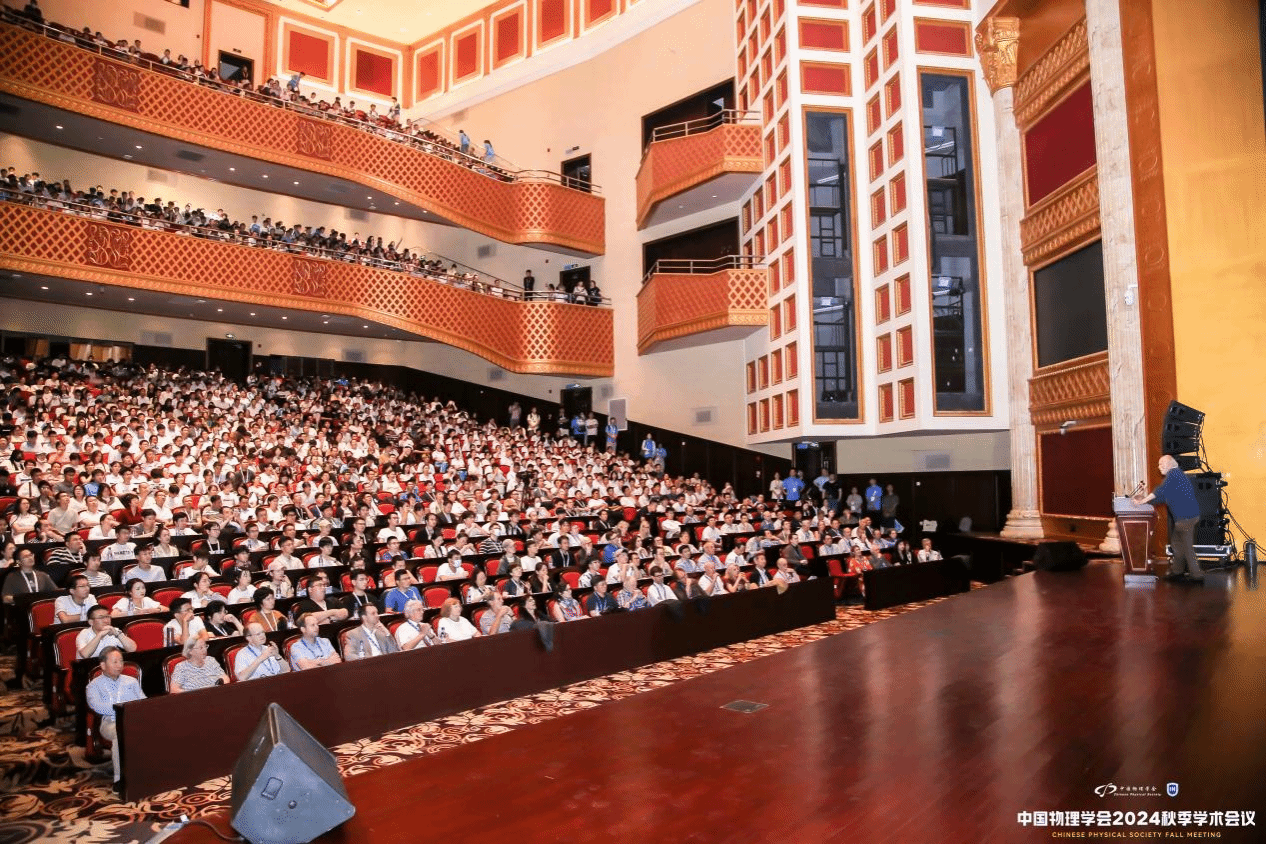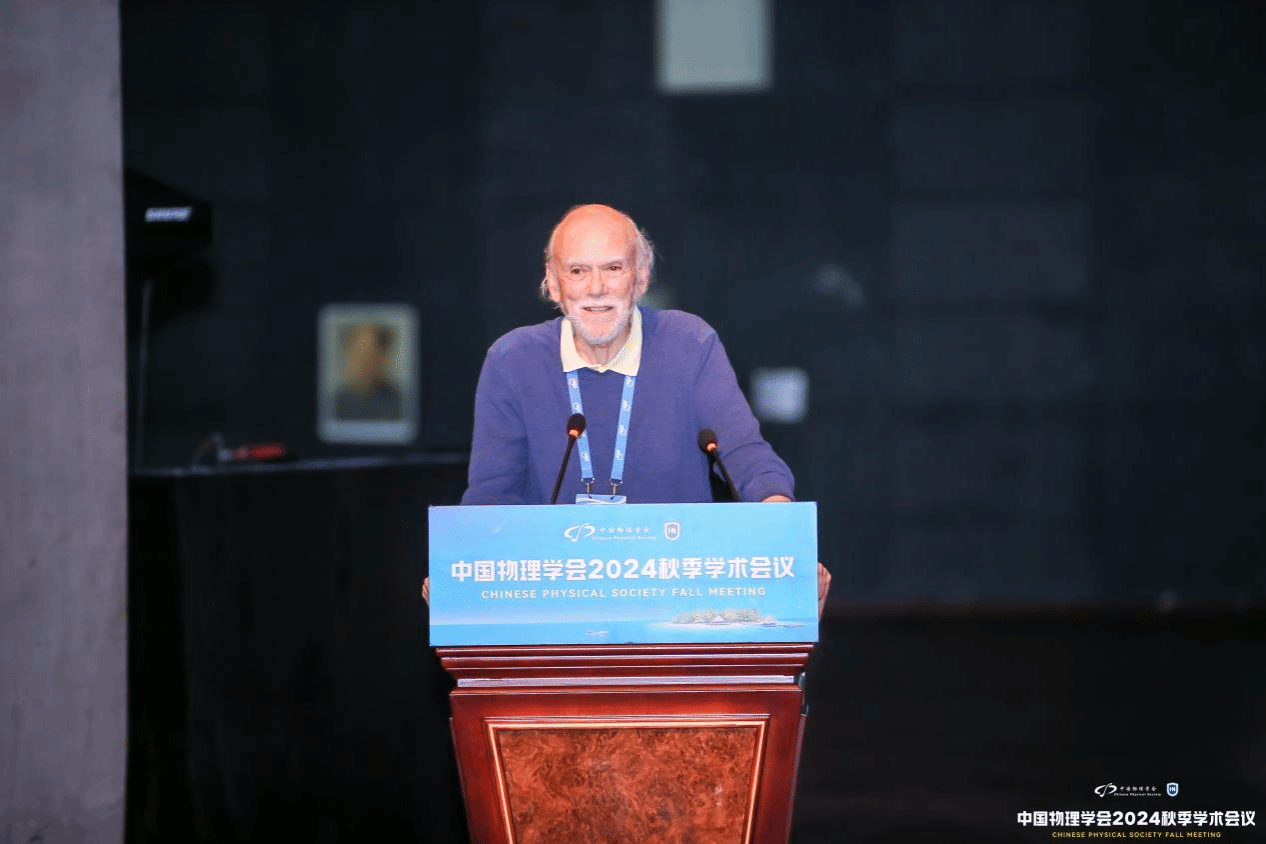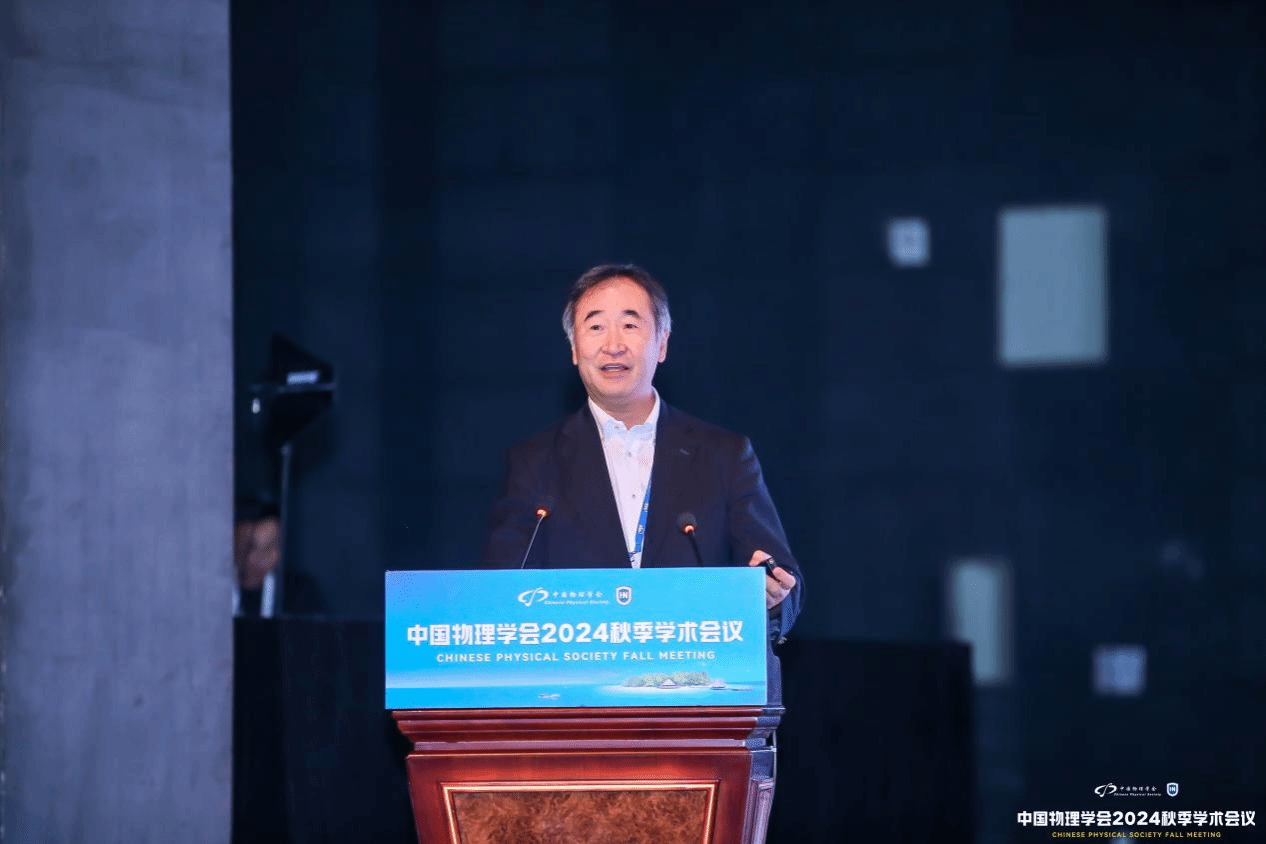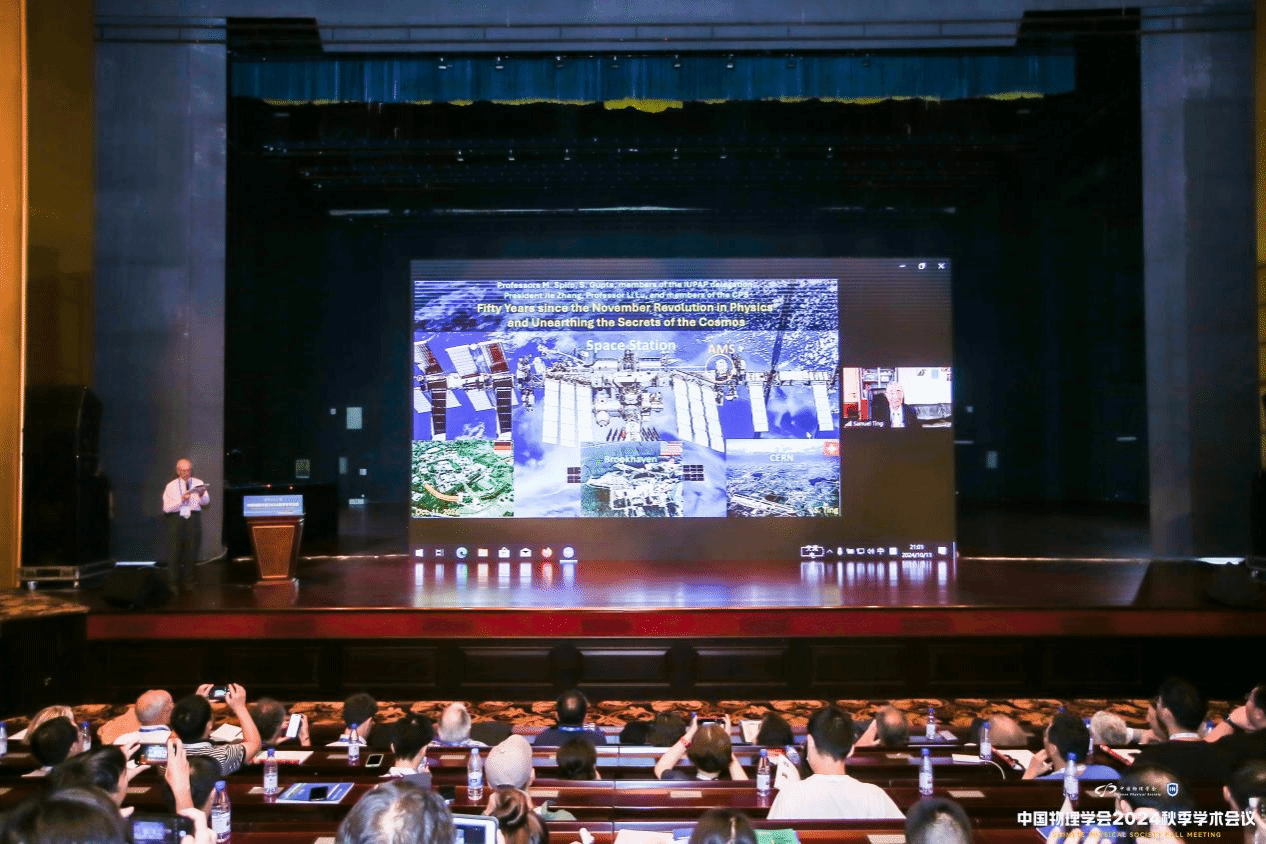On the evening of October 11, the IUPAP Public Lecture: Nobel Prize in Physics Special Session, co-hosted by the International Union of Pure and Applied Physics (IUPAP) and the Chinese Physical Society (CPS) and co-organized by Hainan University (HNU), took place at the Oriental Global Theater in Hainan International Convention and Exhibition Center (HICEC).
The event featured a few preeminent physicists, including 2017 Nobel laureate Barry Clark Barish, a member of US National Academy of Sciences, 2015 Nobel laureate Takaaki Kajita, a member of the Japan Academy, 1976 Nobel laureate Samuel Chao Chung Ting, a member of NAS and a foreign member of Chinese Academy of Sciences (CAS), CPS President Zhang Jie, a member of CAS, and HNU President Luo Qingming, a member of CAS. It was presided over by IUPAP President Michel Spiro.

Lecture Venue (Photo courtesy of the Publicity Department)
Barry Clark Barish, a 2017 Nobel Prize recipient for his groundbreaking work with the Laser Interferometer Gravitational-Wave Observatory (LIGO), delivered a lecture titled “Gravitational Waves: Unraveling the Mysteries of our Universe”. In his presentation, Barish delved into the intricate relationships between cosmic bodies and their interactions, sharing insights into LIGO’s discovery of the gravitational wave signal GW150914, which opened new pathways for understanding the workings of the universe.

Barry Clark Barish making a presentation (Photo courtesy of the Publicity Department)
Takaaki Kajita, a 2015 Nobel Prize laureate for his discovery of neutrino oscillations, presented his findings in a lecture titled “Neutrinos: The Key to Unlocking the Mysteries of Microscopic Particles and the Universe”. He explained the fundamental properties of neutrinos and highlighted his major discovery that neutrinos undergo oscillations, changing types as they travel through space. His work provided the first proof that even neutrinos, previously thought to be massless, possess mass. That discovery marked a milestone in the studies of particle physics.

Takaaki Kajita making a presentation (Photo courtesy of the Publicity Department)
Samuel Chao Chung Ting, a 1976 Nobel laureate, shared a retrospective of his scientific journey in a presentation titled “Fifty Years Since the November Revolution in Physics and Unearthing the Secrets of the Cosmos”. Ting recounted his discovery of the J particle, a long-lived neutral particle with a mass three times that of a proton. He emphasized the importance of curiosity and passion in scientific discovery, noting that “Curiosity keeps you from getting bored, and with it, you’ll never tire of the quest for knowledge.”

Samuel Chao Chung Ting making presentation via video link (Photo courtesy of the Publicity Department)
Before the lectures began, HNU President Luo Qingming warmly welcomed the Nobel laureates and other distinguished guests. The auditorium was fully packed with around 1,700 students and teachers from HNU, Hainan Normal University, and local high schools, as well as over 100 scholars from 26 countries. In the Q&A session, attendees raised profound questions and the Nobel laureates gave detailed and insightful answers.
Prof. Li Xiong, from HNU’s School of Physics and Optoelectronic Engineering, reflected on the lectures: “I was deeply inspired by the insights from these Nobel laureates. They reminded me that while advanced research techniques are important, the true driving force behind great scientific discoveries is curiosity and persistence. We should take them as role models and make persistent efforts to scale new heights in physics research.”
Qiu Xue, a first-year HNU graduate student specializing in Information and Communication Engineering, expressed her excitement after the lecture: “It was an incredible experience to hear Prof. Ting speak about his research on subatomic particles. His talk has sparked my interest in atomic physics, and I am eager to delve deeper into this field.”
Another graduate student, Liang Yijiang, majoring in Optoelectronic Information Engineering, shared similar feelings: “For a physics student like me, becoming a Nobel laureate represents the pinnacle of scientific achievement. This lecture has not only deepened my understanding of physics but also strengthened my determination to pursue research in this field.”
Source from HNU News
Translated by Han Yunsheng
Proofread by Kuang Xiaowen, Yang Jie